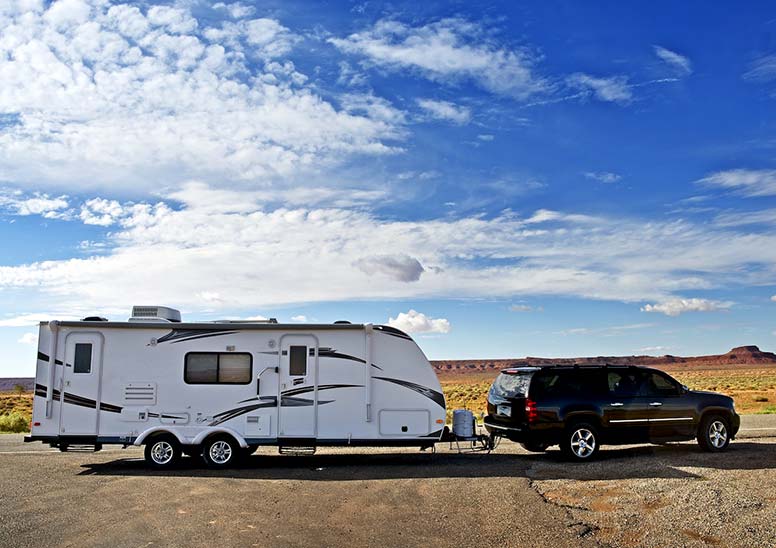The Ultimate Trailer TowingGuide
Travel restrictions and lockdowns are slowly being lifted across the country, yet the threat of infection is still very much present. As a result, many of those who have been cooped up at home are now looking for alternative ways to travel that would still allow them to maintain a safe distance from everyone else.
For this reason, there has been a growing interest in RVs, camper vans, and travel trailers. After months of quarantine, people are ready to stretch their legs and enjoy the gorgeous summer weather—and these mobile living spaces are the perfect way to safely do that.
Whether you plan on camping, jet skiing, or exploring the great outdoors, the most important thing you’ll have to consider before making the trip is finding the right vehicle or trailer that can accommodate your needs.
If this is your first time purchasing or renting a travel or utility trailer for a trip or vacation, this guide has all the information you need.
Towing a Trailer for the First Time: What You Need to Know
Note: This article will focus on non-commercial trailers, which include recreational or travel trailers and utility trailers.
1. What is a trailer?
Trailers are non-motorized vehicles that can be towed by a motorized vehicle such as an SUV, minivan, crossover, pickup truck, etc.
Some vehicle manufacturers include built-in towing features and offer tow/haul packages for certain trim levels, meaning the vehicle would come equipped with the tow hitch assembly and other towing accessories and electrical components.
As for vehicles that do not include the necessary equipment for towing, CarParts.com offers a wide selection of hitches and other towing components that are built specifically for your vehicle.
Reminder: Some states will require special licensing or registration for your trailer, so it’s best to contact your local Department of Motor Vehicles (DMV) for more information.
2. What are trailers used for?
Trailers vary in function, design, and features. Below are the three main uses for trailers:
-
Hauling equipment for small business use
Trailers are often used by small business owners to haul materials and equipment such as landscaping or pool cleaning tools. Some mid-size and small trailers are also used to haul crops and livestock.
-
Transporting small vehicles and sea vessels
There are trailers that are designed to haul small to full-sized vehicles such as motorcycles, dirt bikes, and ATVs. Some trailers are also designed to store, launch, and retrieve sea vessels such as boats and jet skis.
-
Traveling or camping
Trailers for travel or recreational use provide shelter and some home comforts while on the road. Depending on the type of trailer, there may even be extra storage space (in addition to the living area) that would allow you to haul large cargo, such as recreational vehicles.
When traveling with a trailer, it’s important to remember that you cannot just park anywhere. You’ll have to find a designated area—such as national parks, campgrounds, and forest recreation areas—if you want to park your vehicle and trailer overnight. These places offer amenities such as water, electricity, and sometimes even sewage (greywater/ blackwater) disposal.
Before going on a trip, it’s best to check with the local authorities and camp administrators at your desired destination if travel trailers are allowed. The same goes for docks and other recreational sites.
3. What are the Different Types of Trailers?
As mentioned above, trailers come in a wide variety of shapes, sizes, designs, and included features. Small trailers can be moved with a single set of axles, while larger trailers may have up to three axles.
Below are the two major types of non-commercial trailers that are commonly used in small businesses and recreational activities:
Types of Utility Trailers
Utility trailers are used to haul equipment, construction tools, and smaller vehicles. There are two main types: enclosed and open-air or flat-bed.

Enclosed Trailers
Enclosed trailers have a watertight cargo box design. These types of trailers usually come with aluminum exterior skin that comes prefinished. All of the exposed frame components and fasteners are coated for added protection.
Made to withstand inclement weather and offer maximum protection for the cargo stored within, this type of utility trailer is typically more expensive than open-air trailers.
Enclosed trailers can also be customized and fitted with workbenches and storage cabinets so they can function as mobile workshops.
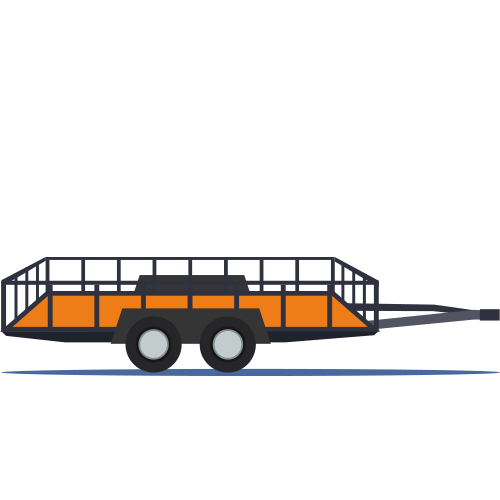
Open-Air/Flat-Bed Trailers
Open-air trailers have a durable steel or aluminum frame. These trailers also vary in size, from simple one-axle trailers that can haul light cargo to large, flatbed trailers that can accommodate several cargo containers.
There are also specialized open-air trailers for hauling and launching boats. Non-commercial boat trailers usually have mechanisms like polyurethane rollers or glide-paths that allow for easy launching and retrieval of the boat.
Open-air trailers are usually more affordable than enclosed trailers, but they offer little protection against the elements.
Types of Recreational Trailers
Toy Haulers/Toybox Garage
Toy haulers or Toybox garages are trailers that have both a living space and a garage area or storage compartment. This type of trailer allows you to bring toys like motorcycles, ATVs, race cars, and even personal watercraft along on your trip.
Toybox garages come equipped with a foldable rear ramp that allows access for small vehicles and watercraft. The garage area can also serve as an extended living area. Some models are also equipped with porches.
Toybox garages offer plenty of storage space, but this reduces the amount of living space. Also, hauling motorcycles and ATVs can affect trailer balance and handling.
Toybox trailers usually measure anywhere between 18 to 45 ft. and can weigh around 3,000 to 20,000 lbs. with no cargo. They can accommodate around 4 to 8 people.
To purchase this type of trailer, expect to pay anywhere from $10,000 to over $150,000.
On the other hand, the average price for renting a toy hauler is around $100 to $200 per night.
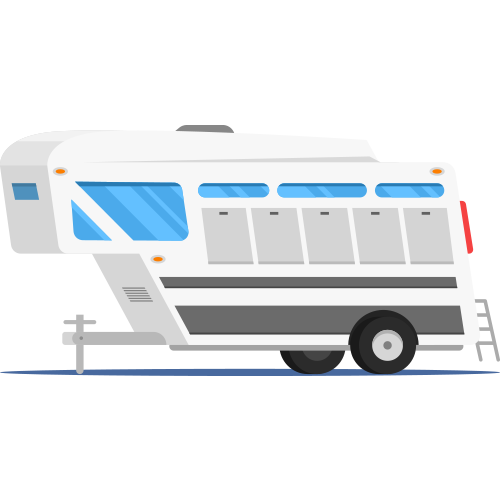
Pop-Up Campers
Pop-up campers offer very basic amenities (they often lack most of the amenities other trailers typically have, such as kitchens and bathrooms) and are the lightest of the travel trailers listed here.
Because of their simple construction, they’re very easy to set up.
Pop-up campers are great if you want a more affordable and lightweight trailer that’s easy on fuel economy and can be towed by a large car or a small truck (although this would still depend on the vehicle’s towing capacity).
Pop-up campers weigh less than 4,000 lbs.—some can even weigh less than 700 lbs. They also range in size, from 8 to 20 ft., and can accommodate up to eight people at a time.
You can get a pop-up camper for around $10,000 to $30,000, or less if you are looking to purchase used.
The average rental prices for pop-up campers range from $50 to $100 per night.
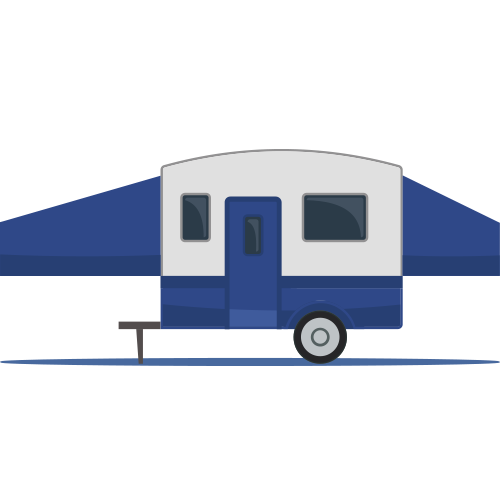
Travel Trailer
Travel trailers are similar to motorhomes in that they also provide some of the amenities that the latter may have, such as toilets and showers. These trailers come in a wide variety of sizes and designs and can usually accommodate up to eight people.
Below are some of the most popular types and designs:
- Teardrop-shaped trailers that resemble a tent on wheels;
- Molded fiberglass trailers like the Casita and Scamp;
- Mid-priced trailers that feature various amenities for a reasonable price. Examples of these include the Forest River, Jayco, and Gulf Stream;
- The aluminum-bodied Airstream with its signature design.

Travel Trailer
Also called RV trailers, this type offers more space and comfort than pop-up campers, but may also cost more. They also require bigger, more powerful towing vehicles due to the heavier load.
Unlike pop-ups, travel trailers have rigid walls that provide insulation and soundproofing in some cases.
RV travel trailers will usually have a single axle, although larger trailers will have two to three to help with stability. These trailers typically measure anywhere from 8 to 40 ft. and weigh between 1,000 to 10,000 lbs.
If you want to purchase a travel trailer, expect to pay anywhere between $10,000 to $150,000.
Rental prices, on the other hand, may range from $50 to $125 per night for units 10 years old or even older. Newer models can be rented for around $125 to $200 per night.

Fifth-Wheel Trailers
Fifth-wheel trailers are the largest of all the options listed here. These trailers sleep up to 10 people and usually measure up to 50 feet and can weigh around 7,000 lbs. or more.
Fifth-wheel trailers are designed to be towed by pickup trucks. This type of trailer requires at least a half-ton truck that’s equipped with a fifth-wheel hitch in the bed of the truck. If you’re opting for this kind of trailer, it’s best to haul it with a pickup that is equipped with dual rear wheels for better stability.
These trailers use a coupling that allows them to pivot in the horizontal plane. The hitch in fifth-wheels is a smaller version of the hitch mechanism used in large, commercial-sized trailer trucks.
Because of its size and features, these trailers don’t come cheap. The price of fifth-wheel trailers ranges from $20,000 to $150,000—or higher with custom add-on features and amenities.
The average rental price for a fifth-wheel trailer is $60 to $150 per night for models that are 10 years old (or older) and about $150 to $300 for newer vehicles.
The Department of Transportation requires a class A license to tow any trailer with a gross vehicle weight rating (GVWR) over 10,000 lbs.
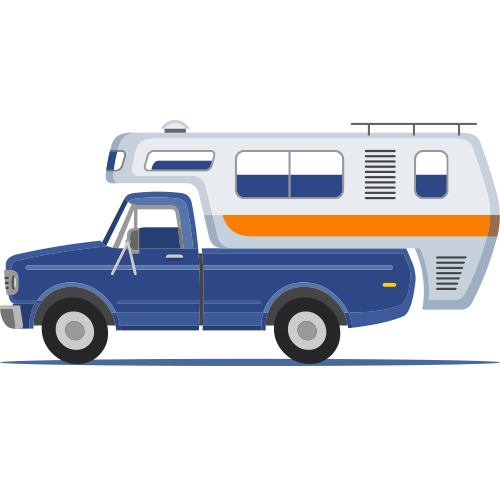
Hybrid/Expandable
Hybrids or expandable trailers provide added sleeping space without the extra weight and length. These hybrid types can sleep four to eight people, depending on their layout and measure anywhere from 8 to 25 ft. and can weigh up to 5,500 lbs.
Hybrids are relatively affordable—their prices range from $10,000 to $40,000.
The downside to this type of trailer is that it takes more time to set up versus the typical RV travel trailer. Also, the tent side of the trailer must be maintained and its fabric replaced regularly.
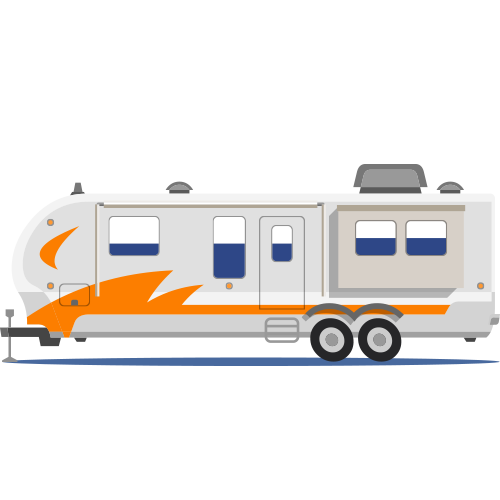
4. Can Your Vehicle Tow a Trailer?
Matching your vehicle with the right trailer depends on several factors. Below are the most important things you should consider when looking for a suitable trailer that your vehicle can tow:
-
Tow Rating
The tow rating is the maximum weight your vehicle can safely tow. Your owner’s manual should have this information.
Under the trailering or towing section of your owner’s manual, you’ll see your vehicle’s engine size, drive, and transmission type. You may also find information on your vehicle’s trim level if your vehicle’s model has more than one possible tow rating.
-
Hitch Considerations
Your vehicle may not come equipped with the right kind of trailer hitch. In some cases, manufacturers may offer an upgraded hitch that can be purchased from an authorized dealer.
These components are made to fit the vehicle directly and sometimes come with wiring adapters as well. Make sure that your tow hitch matches your vehicle’s towing specifications and recommendations.
-
Hitch Components and Ratings
Hitches come in three parts: the receiver that’s affixed to the vehicle, the ball mount that’s pinned to the receiver, and the trailer ball that’s permanently bolted to the ball mount.
The trailer ball comes in three diameters—the larger its diameter, the more weight it can support.
These three components have their own weight ratings, which must comply with or exceed the vehicle’s tow rating.
-
Trailer Weight
The total weight of your trailer plus the payload should always be less than your vehicle’s tow rating. To determine this figure, find the GVWR of the trailer. This is the maximum weight the trailer is able to safely weigh—this includes the trailer’s empty weight (also called curb weight), additional accessories, and total cargo weight.
You can find it among the trailer’s specifications or stamped on a plate inside the trailer body.
Next, find out the trailer’s payload capacity. This is the total weight it can safely carry. This information should be provided by the manufacturer, but you can also calculate this by finding out the trailer’s empty weight and subtracting it from the GVWR—this should give you an idea of the available payload capacity.
Again, as long as the GVWR is less than your vehicle’s tow rating (provided that you make sure to stay within the payload capacity), then your vehicle should be able to safely tow the trailer.
5. Should You Buy or Rent a Trailer?
If you’re wondering whether to rent or buy a trailer, consider how you plan to use the trailer in the long run. If you don’t see yourself using it regularly, a rental trailer would be the perfect solution.
Rentals are great if you have a limited budget. You also won’t have to worry about storage and maintenance. Rental prices depend largely on the rental company, the type of trailer you’re renting, the duration of your rental, and other additional services you may avail.
You’ll also have to pay for taxes, gas, and rental insurance. Some rental companies also charge for cleaning, setting up, and delivering the trailer to your home before the trip.
If you plan on using the trailer often or going on long trips, buying might be the better option. Purchasing your own trailer means there will be no additional costs for cleaning, set-up, and late fees.
The downside is that you’ll have to pay for annual maintenance, repair, future upgrades, and licensing (if applicable).
Best Trailers & Towing Vehicles
What is the Best Travel Trailer: Our Top Picks
- 2019 Forest River Vengeance Touring Edition 385FK - Weight: 19500 lbs / Ave. Price: $120,000
- 2020 Jayco North Point Fifth Wheel Series M-385 THWS - Weight: 15,350 lbs / Ave. Price: $59,750
- 2020 Keystone RV Retreat Series M-39 FLFT - Weight: 13095 lbs / Ave. Price: $46,900
- 2017 Starcraft- Travel Star 324RLTS - Weight: 10500 lbs / Ave. Price: $29,200
- 2018 Sportsmen M-333BHK - Weight: 8520 lbs / Ave. Price: $23,800
- 2018 Revere 33BH By Shasta - Weight: 11280 lbs / Ave. Price: $22,650
- 2017 Forest River R-Pod Hood River 179 Travel Trailer - Weight: 3250-4835 lbs / Ave. Price: $13,100
- 2019 Jayco Hummingbird Teardrop-Style Travel Trailer - Weight: 2000-3950 lbs / Ave. Price: $11,700
- 2017 Dutchmen Coleman Lantern LT Pull Behind Travel Trailer - Weight: 3850-4840 lbs / Ave. Price: $9,600
What is the Best Vehicle for Towing Travel Trailers: Our Top Picks
- 2020 GMC Sierra 3500 Heavy Duty- Towing Capacity: 35,500 lbs / Price: $68,785
- 2020 Ford Super Duty F-350 - Towing Capacity: 37,000 lbs / Price: $67,381
- 2020 Chevrolet 3500 HD - Towing Capacity: 35,500 lbs / Price: $61,796
- 2019 Ford Expedition - Towing Capacity: 9,200 lbs / Price: $47,539
- 2019 GMC Yukon - Towing Capacity: 8,500 lbs / Price: $46,530
- 2019 Land Rover Discovery - Towing Capacity: 8,200 lbs / Price: $44,460
- 2018 GMC Terrain - Towing Capacity: 3,500 lbs / Price: $31,345
- 2018 Jeep Cherokee - Towing Capacity: 4,500 lbs / Price: $20,251
- 2016 Volvo S80 - Towing Capacity: 3,900 lbs / Price: $18,474
How to Hook Up and Set Up a Travel Trailer
Attach the safety chains to the trailer tongue and the trailer hitch. Remember to cross the chains under the tongue for safety. That way, even if the trailer breaks away from the hitch, the safety chains will be able to support the tongue. However, don’t make them too tight as that can hinder you from making turns.
Check the trailer-wiring harness. Many trailers are equipped with electric systems. Trailers have connectors that plug into a tow vehicle’s electric system. Standard plugs and socket wiring are usually color-coded to make it easier to install the connector to the vehicle’s harness. Make sure to spray the contacts with dielectric grease to prevent corrosion. If the connector on your trailer doesn’t match your towing vehicle, you can use an adaptor.
Check the trailer brakes and the brake battery. Trailers that can haul more than 1,500 lbs. usually have braking systems. These braking systems rely on a small gel-cell battery that initiates the brakes when the trailer tongue breaks away from the trailer hitch. The battery charges whenever the towing vehicle’s engine runs, but it’s best to check the battery before you start your trip. You can use a voltmeter to check if the battery is alive—otherwise, you can hook it up to an external charger to make sure that the brakes are working.
Make sure to weigh your trailer before hitting the road. The trailer weight that’s usually printed on the registration might not include the trailer’s interior furniture or cargo. You can do so at most truck stops, stone-and-gravel yards, and feed stores. Before having your trailer weighed, make sure to load up all the items you plan to bring on the trip. Also, make sure that your water and propane tanks are full. Once there, you can measure your overall trailer weight and tongue weight. You’ll want around 10 percent of the trailer’s weight on the tongue. Shift the cargo within the trailer until you get the correct distribution.
Check side mirror visibility. If you’re hauling a trailer that has a wider wheelbase than your towing vehicle, you may need to replace your normal sideview mirrors with a larger set that’s designed for towing—or you can use mirror extenders. Some states will require you to use mirror extenders if you’re hauling a trailer over a certain size.
Inflate the trailer’s tires to its maximum recommended cold pressure. When a trailer’s tires are properly inflated, they’ll run cooler and the risk of them overheating goes down significantly.
Hitch your trailer before you load it. Trailers need to be properly balanced to avoid swaying while towing. Make sure to couple your trailer to your tow vehicle to prevent the trailer tongue from tipping up as you load a heavy object from the back of the trailer.
As you hook up your trailer, make sure to check if all lights are working. To avoid going back and forth in flipping switches, you can just turn on the parking lamps and the hazard lights. If all of these light up, it means that your turn signals and brake lights are also working.
Tips for Traveling with a Trailer
Do your research.
Contact the camp administrators or local authorities about trailer regulations, camp rules, as well as amenities such as water, electricity, etc.
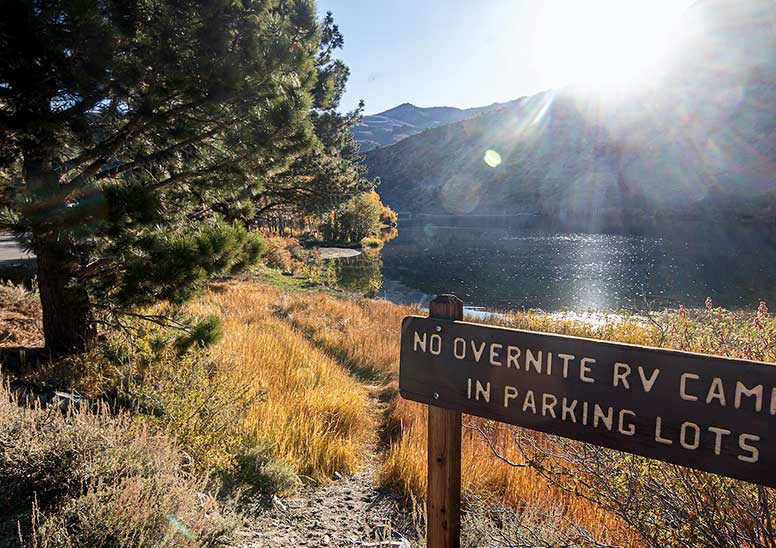
Do not forget to fill up your water tank.
Likewise, empty your greywater and blackwater tanks at the campgrounds instead of hauling the extra weight.
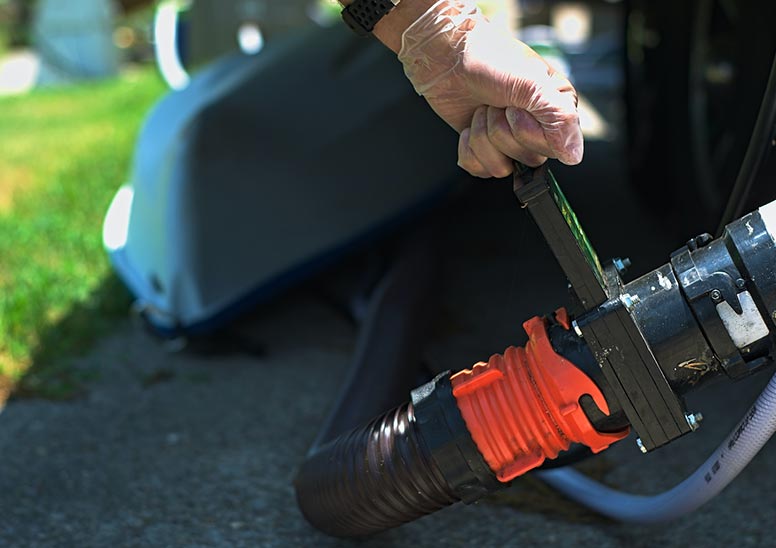
Make sure your trailer is equipped with high-quality locks and other security features.
Also, don’t forget to bring standard tools in case you need to do some repairs.
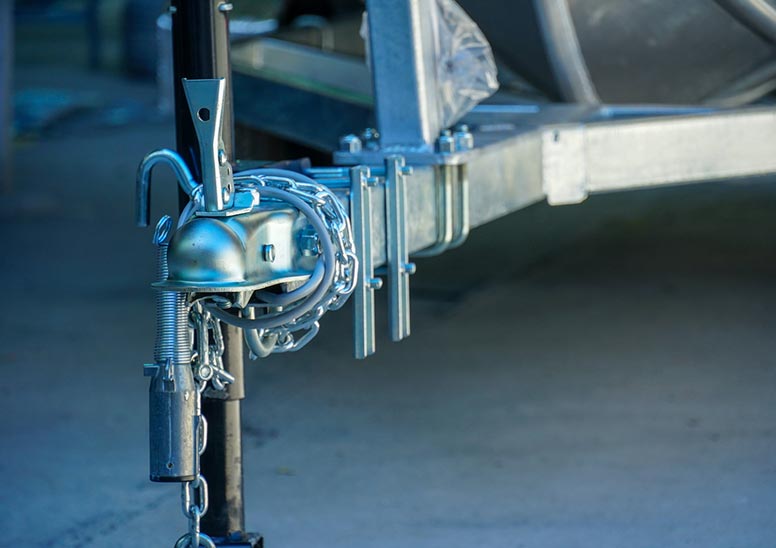
If you’re new to towing, it’s crucial to get a bit of practice driving with a trailer in tow.
Your vehicle will move and respond differently as it hauls additional weight. You can practice towing a trailer in an empty parking lot.
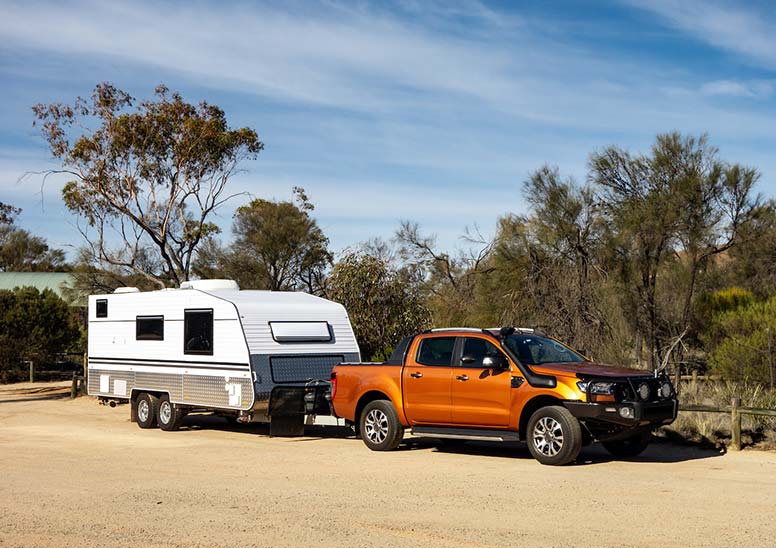
To minimize swaying,
make sure that your cargo or the items inside your trailer are clipped or fastened securely. Items stored inside trailers won’t stay put as you drive and they may affect the trailer’s balance.
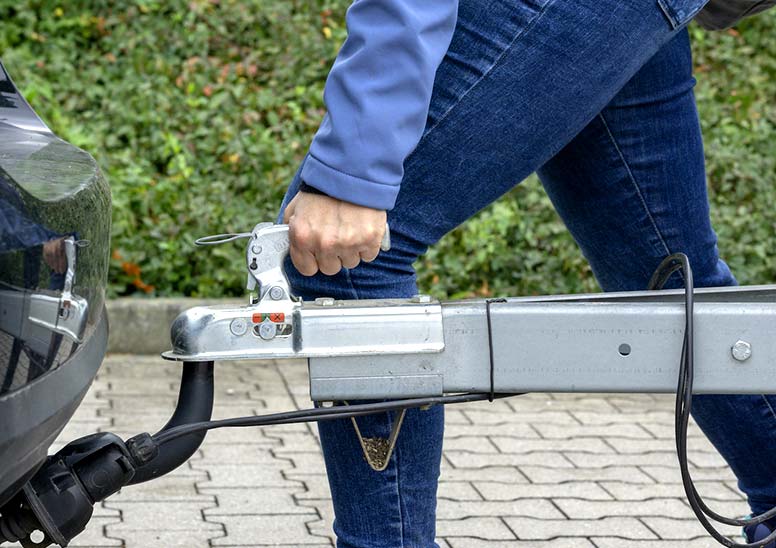
Be careful when making turns.
You risk hitting the curb or other objects on the road if you’re not mindful of the trailer’s distance to the edges of the curb. Always allow for extra room when making turns.
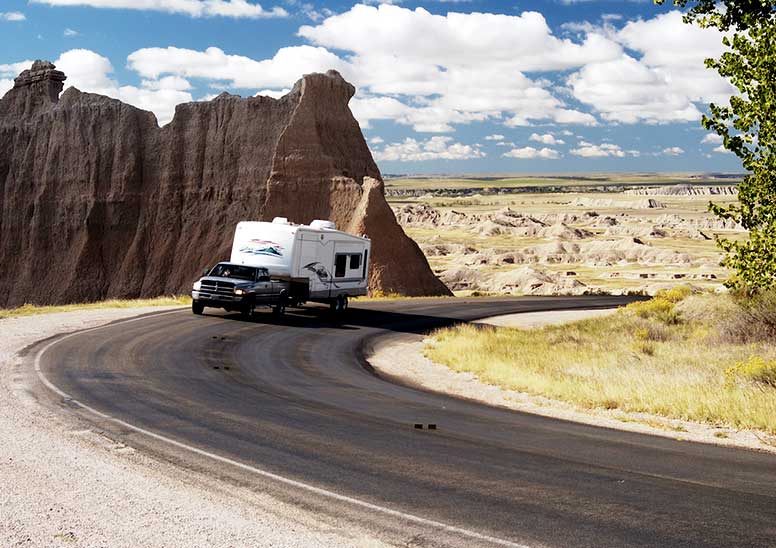
Be careful when accelerating or stopping.
The overall momentum of your vehicle increases as you tow because of the additional mass that the trailer contributes. It’s important not to drive or brake too fast as your braking system could wear faster than normal. Also, keep your distance from other vehicles when driving with a trailer in tow because you might not have time to stop if an accident happens.
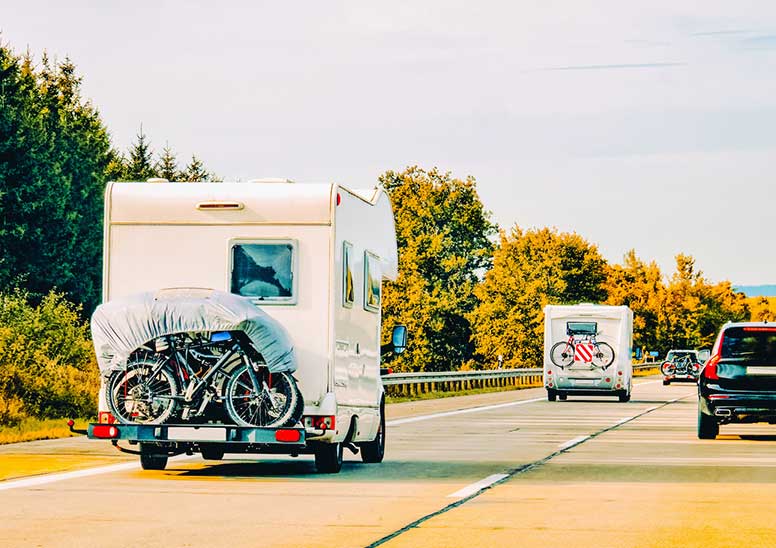
Use a spotter when backing up.
Go slowly and carefully and use small initial movements. As you’re turning into a corner, you might need to change the direction of steering midway so you can prevent the arc of the trailer from tightening too much.
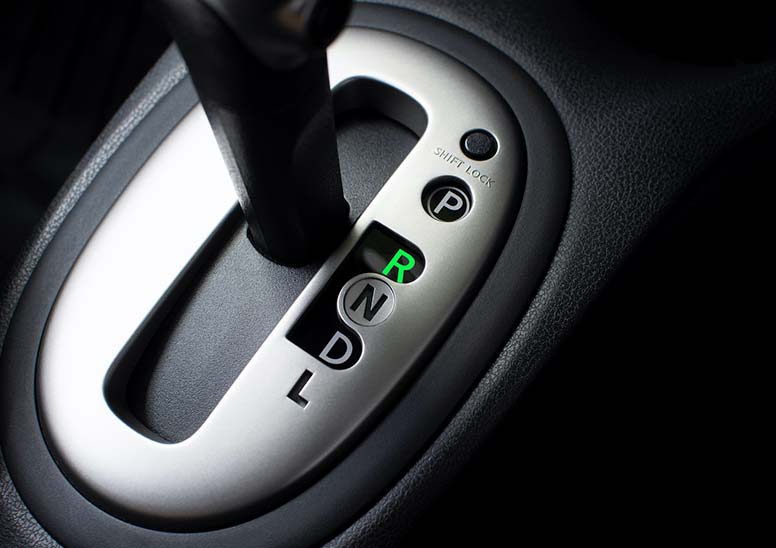
Do not drive too fast.
Different states have different speed limits for when you’re towing a trailer. In California, the maximum speed is capped at 55 mph. In Florida, the speed limit for towing vehicles is 30 mph in business and residential districts and 55 mph at all other locations. Most states allow vehicles towing trailers to run at the same speed as passenger cars, though these speed limits can vary depending on the location. Signages are usually present, especially on interstate and secondary highways.
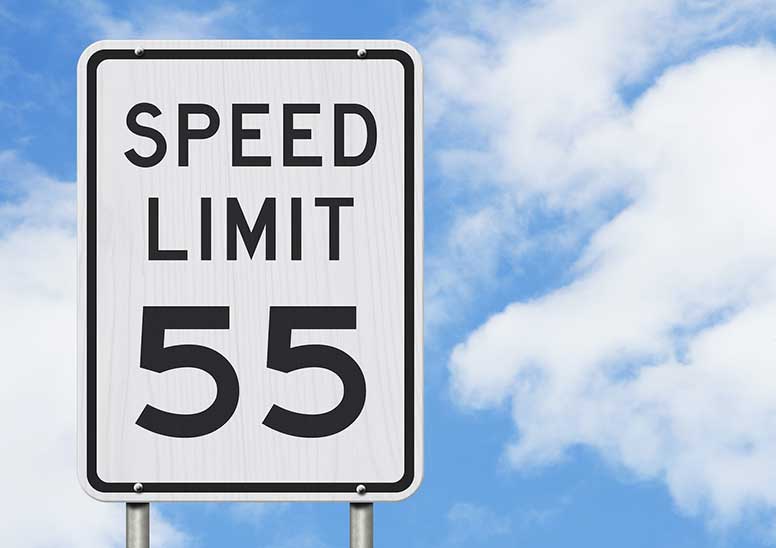
Check your trailer every time you stop
or after a few hours into the trip. Your cargo can come loose due to road vibrations, even if you secured them properly. Also, make sure to check the hitch and the electrical wirings, too.
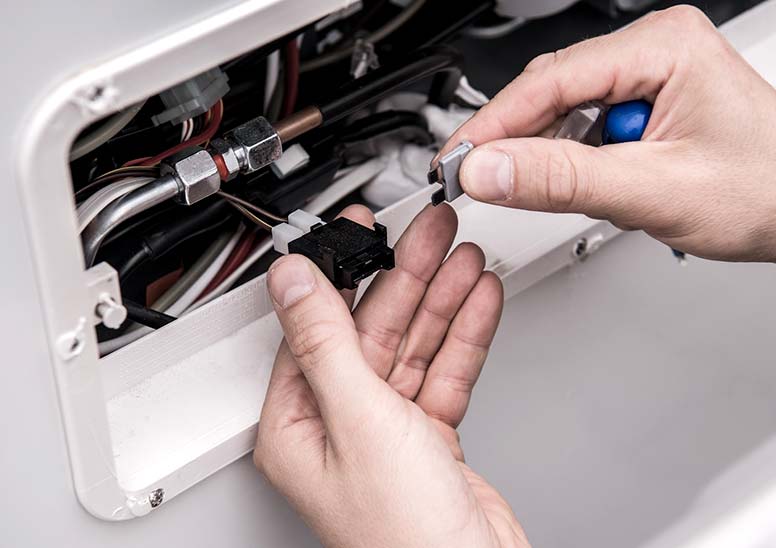
Check your tire pressure frequently.
Your tires are put under much more stress while towing, and getting a flat tire can be very inconvenient. Check and adjust tire pressures regularly to avoid issues.
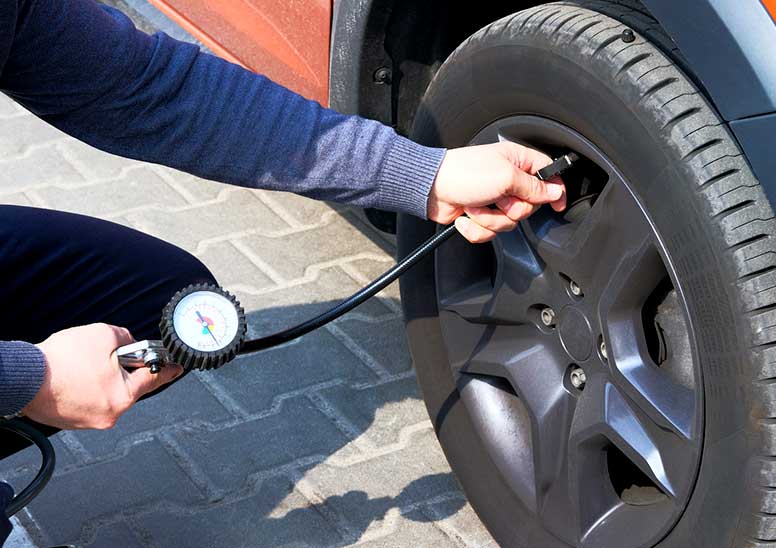
Hot wheel bearings may also indicate that it’s approaching the end of its lifespan.
If this happens, make sure to check the bearing cavity if it still has sufficient grease inside and is adjusted properly.
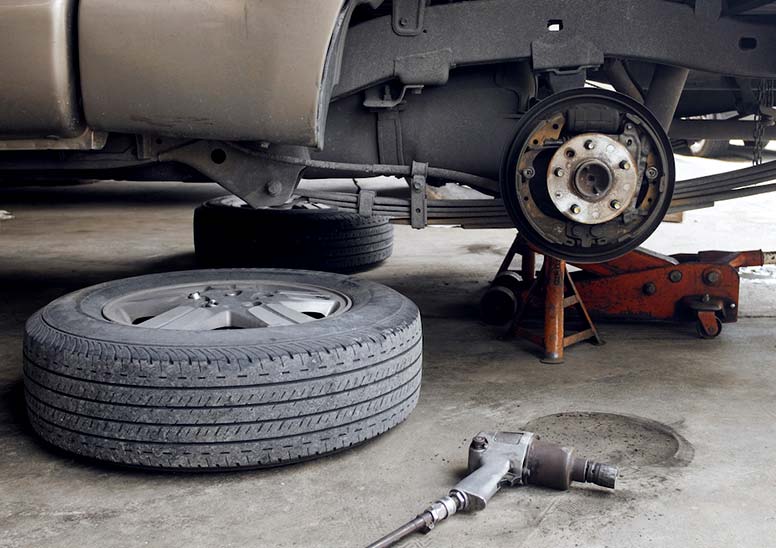
While at the campsite,
make sure to check the tire pressure, brakes, and lights on both the tow vehicle and the trailer.
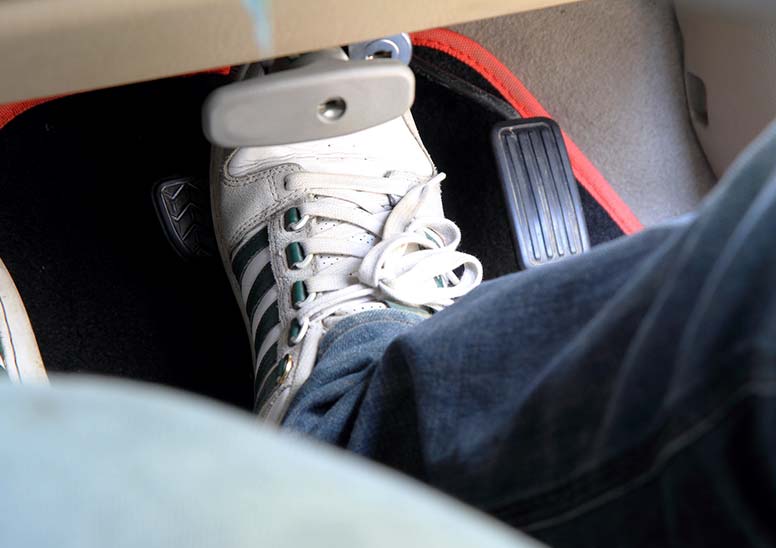
Before leaving the campsite,
make sure to check the status of all electrical connections, cargo, tire pressure, etc.
